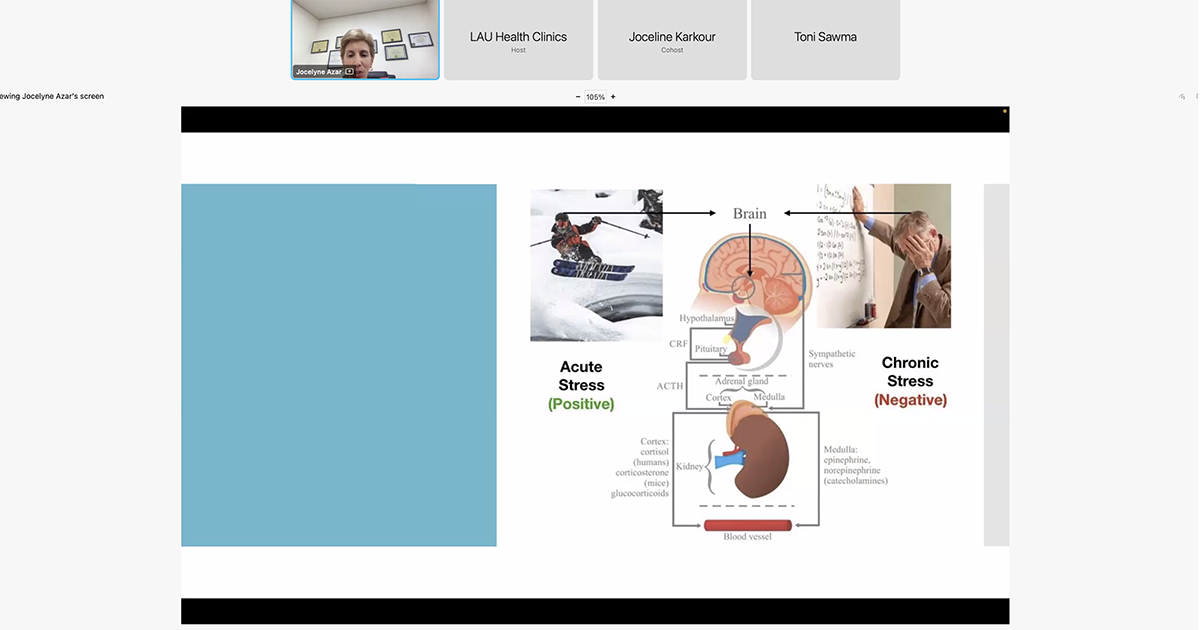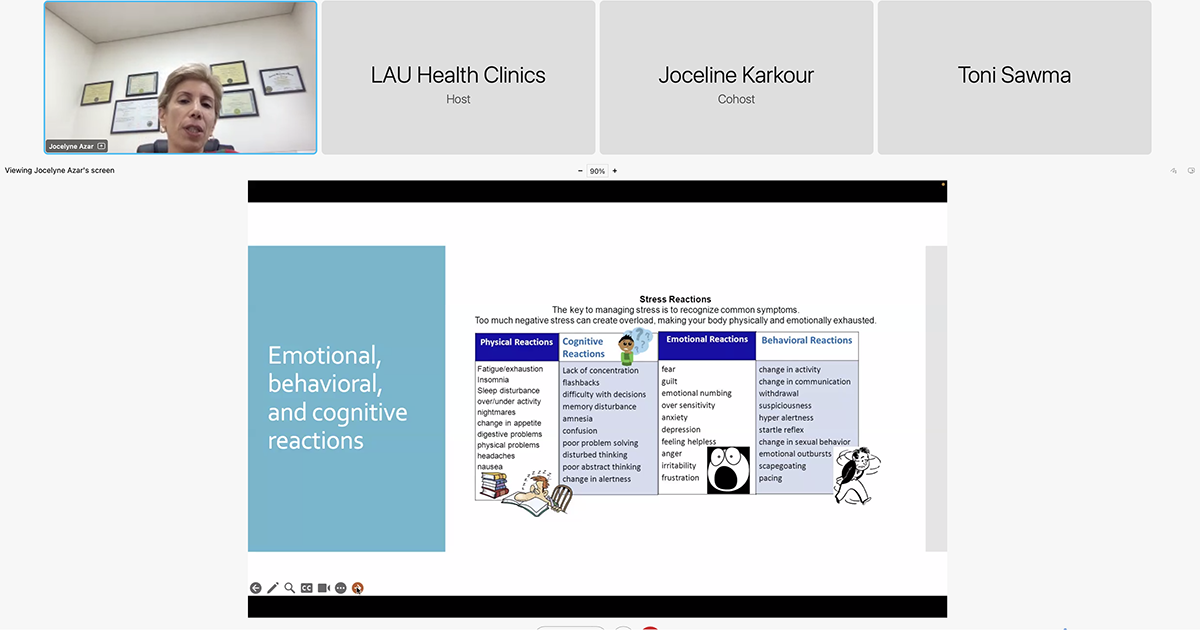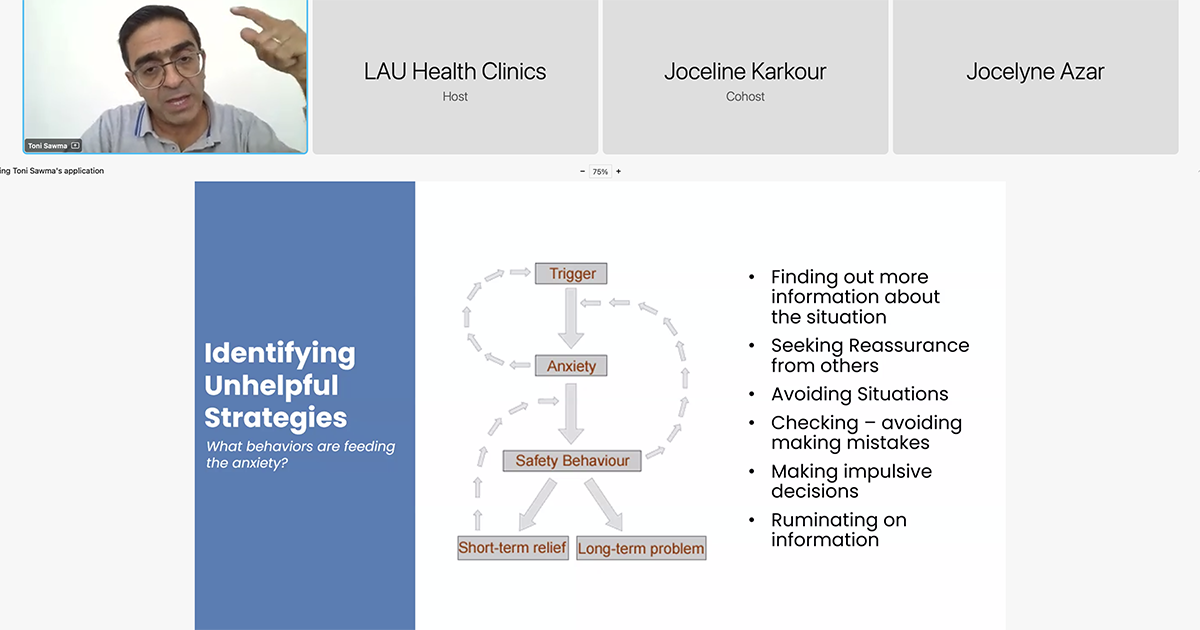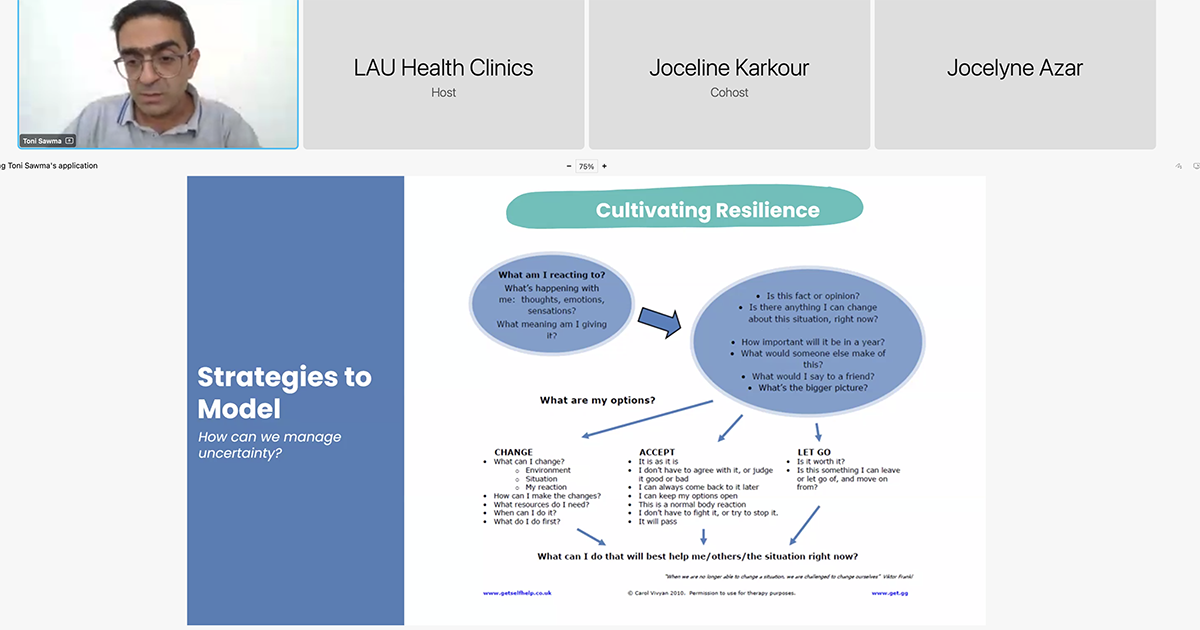A Crisis Intervention for the LAU Community
LAU’s health experts discuss mental wellbeing in times of conflict and offer practical tips for managing cumulative stress.
Over the past five years, the country has faced a series of consecutive and overlapping events that have put individuals under immense psychological strain. Now, with rising geopolitical tensions, recent earthquakes and looming threat of a national and regional war, sustaining one’s resilience is becoming increasingly taxing mentally and physiologically.
To help the LAU community navigate and address stress aggravated by the current situation, LAU HEALTH organized an online webinar on August 13 titled Managing Stress During Uncertain Times for the university’s faculty, staff and students.
“This webinar is part of our broader effort to equip our faculty, staff and students with the necessary tools to not only cope with the current stressors, but also to fortify their long-term mental health,” said Dr. Tony Zreik, LAU’s vice president for Health Affairs.
“By continuing to offer these vital initiatives, LAU HEALTH aims to foster a supportive and resilient community that can thrive even under the most demanding circumstances,” he added.
The webinar, which was led by Clinical Assistant Professor of Psychiatry at the LAU Gilbert and Rose-Marie Chagoury School of Medicine Jocelyne Azar and Assistant Professor of Practice in Clinical Psychology at the LAU School of Arts and Sciences Toni Sawma, was moderated by Nathalie Medlege, the lead counselor on Beirut campus, and followed by a Q&A session with the attendees.
Dr. Azar and Dr. Sawma discussed the connection between uncertainty and stress, explaining how our perceived inability to deal with threats, combined with a lack of healthy coping mechanisms, can lead to various psychological and physiological symptoms, which, if left unchecked, can eventually cause illnesses.
“Managing stress starts with recognizing its common symptoms, which can often creep into different aspects of one’s life,” said Dr. Azar.
Stress might first appear as changes in behavior, explained Dr. Azar, such as feeling more on edge or withdrawing from social interactions; cognitively, making it difficult to concentrate, remember details, or make sound decisions; physically, manifesting as constant fatigue, overeating or undereating and insomnia; and emotionally, marked by feelings of guilt, anxiety, depression, or helplessness.
When these symptoms persist over time, they lead to an allostatic load—wear and tear on the body—which increases the risk of developing psychiatric disorders such as panic disorder, melancholic depression, anorexia nervosa, obsessive-compulsive disorder, and others.
The first step in managing stress and addressing its symptoms is to assess the threat level to one’s wellbeing and identify the resources one has to cope with it. This kind of objective reflection, which Dr. Sawma called existential analysis, helps people reframe their perspective on a given situation, eventually eliminating unnecessary anxiety.
It is important to note that sometimes the coping tools individuals use when dealing with uncertainty may not be healthy, such as constantly checking the news, ruminating, making impulsive decisions, or withdrawing. These behaviors create a cycle between thoughts, emotions and physical sensations that exacerbate anxiety.
To break this cycle, Dr. Sawma recommended some self-help strategies, like finding a positive social support system at home and at work to talk to, allocating “worry time” to reduce time spent on things beyond one’s control during the day, practicing grounding techniques to refocus on the present and following certain breathing patterns to instantly alleviate stress.
“By choosing to change the things we control and accepting or letting go of the things we cannot, we cultivate psychological resilience,” said Dr. Sawma.
In response to an attendee’s question about when stress symptoms warrant a therapist’s intervention, Dr. Azar clarified that not all stress is harmful. For instance, positive stress can drive action through the fight-or-flight response. “The goal isn’t to eliminate stress but to embrace it and learn how to manage it,” she explained. “However, when stress becomes chronic and starts interfering with daily life, then it’s time to seek professional help.”



